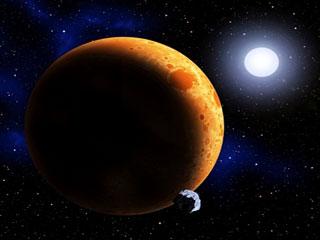
In this artist's conception, the reborn star is shown with a hypothetical world. Photot:CfA
WASHINGTON (BNS): A set of two dying star (white dwarfs) will collide with each other to form a new, living star, according to a study.
Scientists have discovered a new binary system, designated as SDSS J010657.39–100003.3, which is located about 7,800 light-years away in the constellation Cetus, the Whale, and was discovered as part of a survey programme conducted with the MMT Observatory on Mount Hopkins, Arizona.
The two white dwarfs whirl each other with a sped of 1 million mph (1.6 million kph), completing one orbit in only 39 minutes and they are 140,000 miles (225,000 kilometers), apart from each other.
According to scientists, our sun — and indeed, more than 90 percent of all stars in our galaxy — will one day end up as white dwarf stars, which are made up of dim, fading stellar cores where nuclear fusion has stopped. These cooling embers, which make up about 10 percent of all stars in our galaxy, are typically about 40 to 90 percent of the mass of our sun but pack that all into an Earth-sized ball.
Earlier, scientists have revealed pairs of white dwarfs whirling around each other. For the first time astronomers have observed two such stars set to collide and create another.
"These stars have already lived a full life. When they merge, they'll essentially be 'reborn' and enjoy a second life," Space.com quoted researcher Mukremin Kilic, an astronomer at the Harvard-Smithsonian Center for Astrophysics in Cambridge, as saying.
The binary consists of a pair of white dwarfs, a visible star and an unseen companion whose existence is suggested by the way it gravitationally distorts the visible star. The visible white dwarf is about 17 percent the mass of the sun, while the other white dwarf is 43 percent the mass of the sun. Astronomers believe that both are made of helium, the website reported.
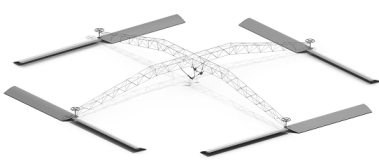 Previous Article
Previous Article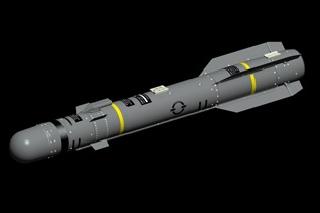 Next Article
Next Article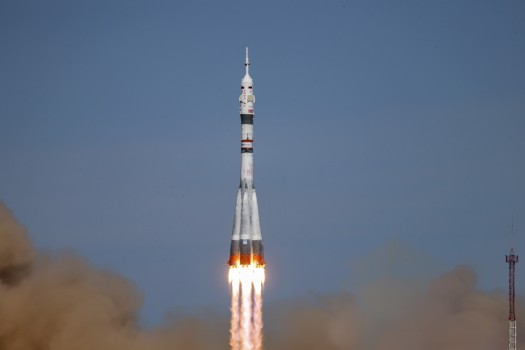

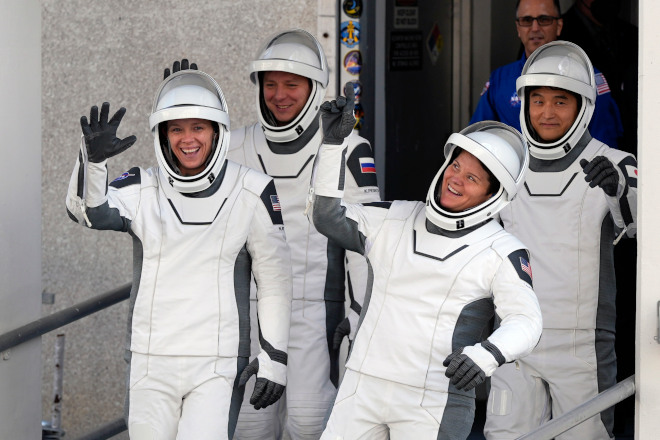











The Indian Air Force, in its flight trials evaluation report submitted before the Defence Ministry l..
view articleAn insight into the Medium Multi-Role Combat Aircraft competition...
view articleSky enthusiasts can now spot the International Space Station (ISS) commanded by Indian-American astr..
view article